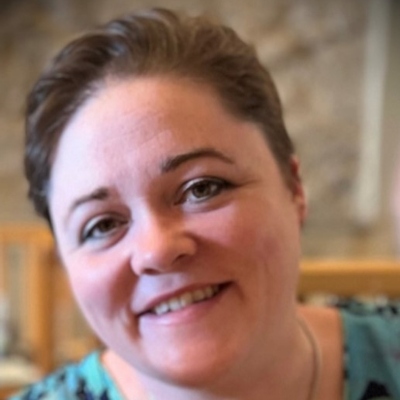RESEARCH: SIMULATION IN SONOGRAPHER EDUCATION
 What stage of your research career are you currently at, and what are your research interests?
What stage of your research career are you currently at, and what are your research interests?
I work full time as a senior lecturer in diagnostic imaging at Sheffield Hallam University. I am in the last year of a part time PhD, using a qualitative approach to investigate the role of simulation in sonographer education.
How did you get into research?
In my academic role, completing an MSc was an essential step in my professional development. I discovered that through engagement with research I was able to continuously learn and explore a wide variety of interesting topics. My PhD was the next step in developing a deeper understanding of research and allowed me to investigate a topic relevant to my practice as an educator.
What do you enjoy about research?
I enjoy the variety of the work, and the challenge of finding answers. I hope that I can inspire others to enjoy research at undergraduate and postgraduate levels. I value opportunities to collaborate and learn from others.
What challenges do you face as a researcher?
Completing a part time PhD alongside a full-time role and a busy family life can be difficult. Finding time to complete research alongside my other responsibilities is not always possible.
What difference has your research training and experience made to your career?
As a senior lecturer I supervise a variety of Masters level dissertation projects, which can be on a wide variety of topics and use varied methodologies. The training and experience of completing my own research has helped me develop better knowledge and skills for supervising new researchers.
What do you think is the greatest misconception about clinical academia?
In academia, I think the amount of administration, paperwork and planning required is often underestimated.
How has research changed your practice?
As an academic, my research has enabled me to improve my own practice as an educator and research supervisor, which has an ongoing positive impact on my students.
What has made a difference to progressing your research career?
So many things. A supportive partner and strong family support network have been essential. Initially, a successful application for funding made research affordable.
Progressing through a part time PhD would be impossible without the guidance of excellent mentors and project supervisors. Support and encouragement from colleagues, and good peer support networks have a significant impact on progress and self-belief. Attendance at professional conferences during my studies has a positive impact to set deadlines for presenting research findings, provides important opportunities to spend time with inspirational and highly motivated professionals, and helps to develop peer support networks.
Where do you see your clinical academic career going over the next few years?
I would like to continue to be actively involved in research, and I particularly want to be involved in working within multidisciplinary teams (rather than as an individual PhD researcher). I hope to become a Doctoral Supervisor for others to support them to develop their own research knowledge and skills.
Catriona Hynes, Senior Lecturer Ultrasound, Sheffield Hallam University, c.hynes@shu.ac.uk
Useful links
Contact us
The CATO Team and Radiographers Incubator work on a Hybrid model, combining days in the office with days working from home – the best way to reach us is by email.
cato@imperial.ac.uk
radresearch@imperial.ac.uk
+44 (0)20 3313 7397

